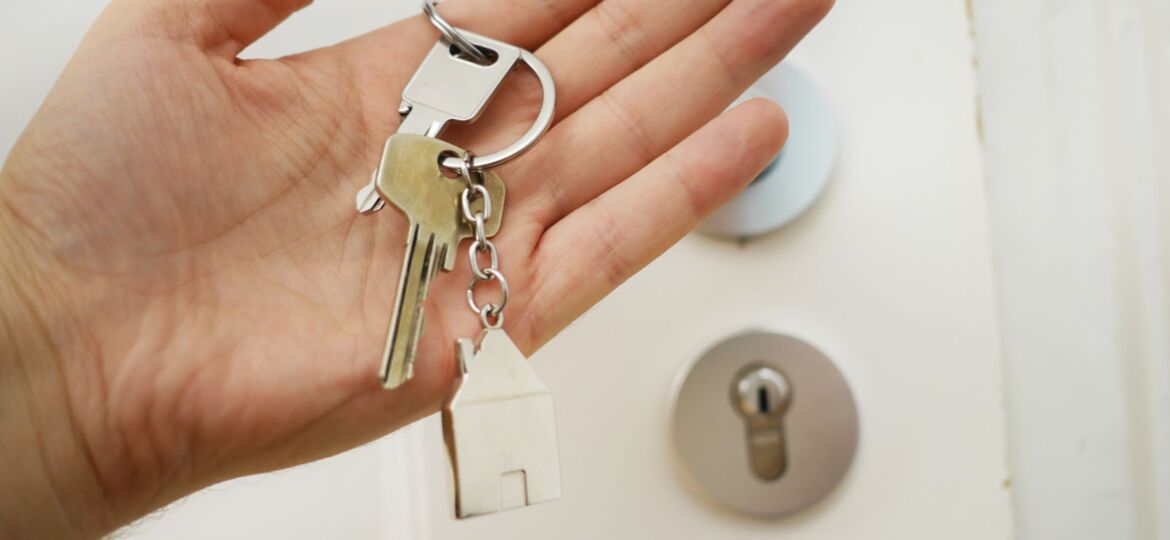
Sometimes, trying to find the right home can feel like trying to solve a mystery. The problem with this mystery is that if you solve it incorrectly, you could end up wasting tens of thousands of dollars. That’s why it’s important to shed light on as many mysteries as you can when you find a home you’re interested in. To help in that important quest, here are a few good questions to ask before you commit to buying a home.
1. What Does It Look Like on a Rainy Day?
If your home is in an area that sees a lot of rain, it’s important to figure out how the house responds to heavy rain. Rather than asking a potentially unreliable seller, it’s a good idea, if possible, to drive past the home you’re interested in on a rainy day. This will allow you to see any potential drainage problems that you’ll have to contend with once you own the home. Plus, if you do notice drainage problems, it might indicate that there are issues with the home’s foundation.
2. What Kind of Neighborhood Is the House In?
Unless you’re buying a modular home, you can’t change the neighborhood where your home is located. Therefore, you’ll want to get a good sense of what the neighborhood is like long before you make an offer. Simple things like noise levels might not seem like much of an issue until you move in and have to deal with those noise levels every day. Look up reports on crime, neighborhood amenities, homeowner’s association costs, and anything else that has the potential to spoil the purchase of your dream home or raise your homeowners insurance costs.
3. What Problems Does the House Have?
Every home has problems. The key is to figure out what those problems are and how expensive they will be to fix. Typically, finding problems is the job of a home inspector. Most of the time, your mortgage company will require an inspection before they will secure your loan. Although a general home inspection will identify issues in many different areas, there are some areas that this type of inspection doesn’t cover. If you want to check for termite damage in outbuildings, for example, you’ll need to hire a specialized inspector for this purpose.
4. When Was the House Built?
Old homes have a charm that is impossible to replicate. Typically, though, older homes are where you run into the most expensive issues. If you’re looking at a home that was built in 1910, you will need to carefully check the plumbing, electrical, and mechanical systems to ensure they have been updated at some point. Otherwise, you could run into some major unexpected expenses that will quickly turn your dream of owning a home into a nightmare.
5. Will the Appliances Stay?
In terms of real estate contracts, almost nothing is off-limits when it comes to seller concessions. One common concession is asking for the appliances to remain with the house. In some cases, sellers will make this concession voluntarily and include the appliances as part of the listing. Beyond appliances, though, you as a buyer can ask for just about anything. However, just because you ask for it doesn’t mean that you’ll get it. In today’s competitive real estate market, it often makes sense to keep your concession requests to a minimum.
6. Who Will Pay Closing Costs?
As a buyer, it’s important to understand the full extent of what you’ll be paying for your home. While most people are aware of the principal and interest rate of their mortgage, many buyers overlook the closing costs they’ll have to pay when the home officially changes hands. Lender fees, appraisal fees, title insurance, and other common costs can add up quickly, so it’s important to understand whether the buyer or seller will be paying these fees when you head to the title company to sign the final papers. If you’re paying the costs, be sure to add them to your house-buying budget.
7. What Is the Age of the Roof?
Of all the renovations you’ll do to your home, one of the most expensive will be replacing the roof. The good news is that a properly installed asphalt-shingle roof can last about 25 years. However, if it’s been almost that long since the last time the roof was replaced on a home you’re interested in, you need to know this before you fall in love with the home. If the roof is on its last legs, you’ll need to request a lower sale price to account for this major expense looming in your future. While this part of buying a home can get tricky, it’s good to know that sellers are required to disclose the age of the roof on their home before you commit to purchasing it.
8. Why Are the Sellers Selling?
One final simple piece of information to collect is to find out why the sellers are selling. There are countless legitimate reasons why someone would want or need to sell a house. At the same time, there are circumstances when someone is simply trying to offload a problematic home to an unsuspecting buyer. If the seller can’t clearly answer why they’re selling, it may be a good idea to look elsewhere.
Don’t Panic
If you’ve gotten this far in this article, you might feel yourself panicking a little bit. The good news is, however, that a good real estate agent can help you navigate all of these potential pitfalls with ease. This will ensure that you’re able to focus on finding a house that you can fall in love with instead of having to worry about someone taking advantage of you. Armed with your agent and the above questions, you can enter the market with confidence.
